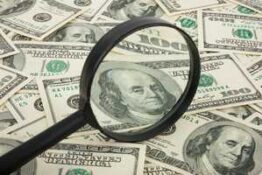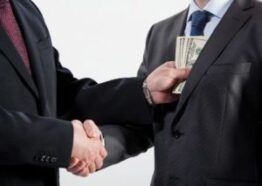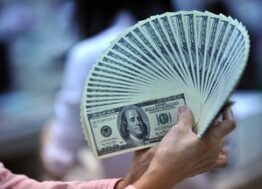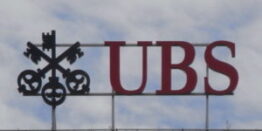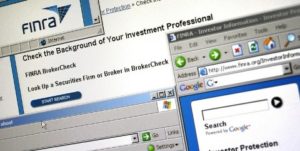

UBS Securities LLC was fined $12 million and censured by the Financial Industry Regulatory Authority, or FINRA, for widespread system deficiencies and a failure to supervise that led to tens of millions of improper short sales.
The firm violated federal securities laws and FINRA rules at various times from January 2005 through March 2010, with several violations continuing through the end of 2010. The violations included improperly excepting short sales from the rules and the improper inclusion of securities in short sales that should have been off limits.
In addition, UBS permitted certain clients to enter short sales in its system without implementing controls to make sure the sales complied with the law, and it failed to supervise the production of documentation required for short sales.
According to FINRA, the integrity of the market was threatened by the duration, scope and volume of the improper trading.
A registered broker-dealer and member of FINRA, UBS has its principal office in Stamford, Conn. As the U.S. investment banking and securities arm of UBS AG, the giant Swiss financial services company, UBS provides investment banking, research, and sales and trading services, mostly to corporate and institutional clients.
Letter of Acceptance, Waiver and Consent
UBS submitted a Letter of Acceptance, Waiver and Consent, or AWC, to FINRA’s Department of Enforcement on Oct. 14, in which it consented to the entry of FINRA’s findings on alleged rule violations relating to short sales without admitting or denying them. FINRA accepted the AWC on Oct. 24.
UBS Violated Federal Regulation
The federal regulation UBS violated — 17 Code of Federal Regulations, Part 242 — is commonly called Reg SHO. It was adopted by the Securities and Exchange Commission, or SEC, in July 2004, and broker-dealers were obligated to comply by January 2005. Reg SHO was established to address potentially abusive naked short selling, among other things.
Short selling occurs when sellers borrows shares and immediately resell them. The sellers then wait, hoping for the stock price to drop, so they can profit by repurchasing the shares to return to the lender for less than they originally paid. Naked short sales occur when the seller has not borrowed the stocks, does not have them in hand but “sells” them anyway. This can lead to abusive market manipulation to drive prices down.
To prevent abuse, Reg SHO established a uniform “locate” requirement. This means that short sellers need to have actually borrowed the shares, or have a bona fide agreement in place to borrow the shares.
Reg SHO was meant to reduce potential failures to deliver the shares by creating uniform order marking requirements, and limiting the time in which a broker-dealer can permit a failure to deliver to persist in so-called threshold securities. These are defined as 10,000 or more shares of equity securities that have an aggregate fail-to-deliver position for five consecutive settlement days at a registered clearing agency and are equal to at least 0.5 percent of the issuer’s total shares outstanding, as explained in the AWC.
As a result of compliance failures, UBS improperly entered millions of proprietary and customer short sale orders at various times during the a roughly five-year period without having reasonable grounds to believe that the securities could be borrowed and available for delivery, the AWC said.
Failure to maintain proper aggregation units and risk management systems also caused problems, including tens of millions of sale orders mismarked as “long,” when they were actually short sales. FINRA also found significant reporting and recordkeeping violations, the AWC says.
The most significant set of problems related to UBS violations of locate requirements meant to prevent naked shorts, the AWC says.
Rule 203(b)(1) of Reg SHO
Rule 203(b)(1) of Reg SHO states that, subject to certain exceptions, a “broker or dealer may not accept a short sale order in an equity security from another person, or effect a short sale in an equity security for its own account, unless the broker or dealer has: (i) Borrowed the security, or entered into a bona-fide arrangement to borrow the security; or (ii) Reasonable grounds to believe that the security can be borrowed so that it can be delivered on the date delivery is due; and (iii) Documented compliance with this paragraph (b)(l).”
During the period of the violations, UBS likely entered tens of millions of proprietary and customer short sale orders without valid locates, the AWC says.
The also firm misapplied Reg SHO exceptions that exempt certain categories of short sale orders from the locate requirement. These include broker-dealer to broker-dealer introduced short sales transactions, bona-fide market-making activities, and certain sales resulting from a convertible security, option or warrant being tendered for conversion or exchange when the underlying security is not reasonably expected to be received in time for settlement.
The SEC has said these exceptions should be sparingly, but when FINRA examined the short sales that took place through UBS from June 1, 2006 to August 31, 2006, it discovered that about 700,000 of them were without locates as a result of improper application of Reg SHO exceptions. Based on the sample period, FINRA estimated that UBS is likely to have made more than 10 million improper short sales in the same manner.
In a specific example, UBS improperly treated short sales in exchange traded funds, or ETFs, as exceptions to the locate requirement because of incorrectly programmed trading systems. This went on from early 2005 to June 2007 for one trading strategy, and into the fall of 2007 for another trading strategy. Another system ran with the improper exceptions from December 2005 to November 2008.
Moreover, beginning in January 2005 until April 2008, UBS improperly categorized equity hedge transactions made by its market-making unit as exceptions to Reg SHO’s locate requirement. The SEC did not create an exception for short sales leading to fully hedged or arbitraged positions, however, because of the difficulty of ascertaining the bona-fide nature of hedging and arbitrage, the AWC says. Therefore, such trades don’t fall within bona-fide market-making category.
As a result of its improper categorization, UBS released an unknown number of principal equity hedge short sales without locates over roughly three and a half years. FINRA says in the AWC that difficulty in establishing the exact nature and scope of these equity hedge short sales made it impossible to discover a number.
UBS took a number of other actions in violation of Reg SHO. For example, it improperly included threshold and hard-to-borrow securities on the firm’s easy-to-borrow list. Appearance on this list satisfies the locate requirement.
The firm also improperly permitted certain clients to bypass the locate requirement, accepted or processed proprietary and customer short sales without locates through its systems, and incorrectly programmed accounts and strategies.
FINRA acknowledged UBS’s “substantial assistance” with the investigation, the AWC says, including an internal review of its supervisory policies, procedures and systems relating to Reg SHO in 2010. The $12 million sanction reflects the credit that UBS was given for its efforts.
Guiliano Law Group
If you have been the victim of securities fraud and you have a complaint, you should consult with an attorney. The practice of Nicholas J. Guiliano, Esq., and The Guiliano Law Group, P.C., is limited to the representation of investors in claims for fraud in connection with the sale of securities, the sale or recommendation of excessively risky or unsuitable securities, breach of fiduciary duty, and the failure to supervise. We accept representation on a contingent fee basis, meaning there is no cost unless we make a recovery for you, and there is never any charge for a consultation or an evaluation of your claim. For more information contact us at (877) SEC-ATTY.


